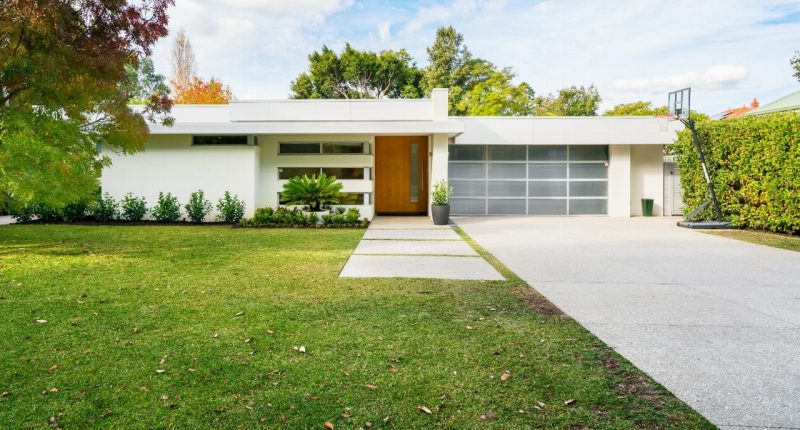- Nearly half of the 40 experts and economists surveyed in Finder’s RBA Cash Rate Survey believe Australia’s current house price growth is unsustainable
- Graham Cooke, head of consumer research at Finder, said that some experts are concerned a housing bubble is emerging
- Positive sentiment around housing affordability (3 per cent) reached the lowest level ever recorded since the Finder survey began in 2018
- The Reserve Bank of Australia recently held interest rates at a historic low of 0.1 per cent, but Cooke said this doesn’t mean home loan rates will stay put
- According to Mala Raghavan, senior lecturer in macroeconomics at the University of Tasmania, buyers may put themselves at risk by acting too hastily
Nearly half of the 40 experts and economists surveyed in Finder’s RBA Cash Rate Survey believe Australia’s current house price growth is unsustainable.
The survey asked experts and economists to weigh in on future cash rate moves and other issues relating to the state of the economy.
Home values have recently been rising at a record pace, with prices up 6.8 per cent over the past three months to be 10.2 per cent higher than the COVID low in September last year, according to CoreLogic.
This, in conjunction with higher levels of investor activity, has heightened worries that housing is now becoming unaffordable.
Graham Cooke, head of consumer research at Finder, said that some experts are concerned a housing bubble is emerging.
“Rock-bottom rates, government stimulus and a fear of missing out have really lit a fire under the belly of the market,” he said.
“Listing numbers are unable to meet high buyer demand, keeping inventory levels low overall and adding to the sense of urgency among buyers.
“We’ve seen more borrowed for housing over the last six months than during any similar period in history – and economists have tipped us to borrow more over the next six. However, the view from our panel is that this fast-paced growth will not continue indefinitely,” he added.
“It’s unlikely we’ll see any regulatory intervention from policymakers yet, but this might be a possibility down the track,” he concluded.
Finder’s Economic Sentiment Tracker gauges experts’ confidence in five key indicators, one of which is housing affordability.
Positive sentiment around housing affordability (3 per cent) reached the lowest level ever recorded since the Finder survey began in 2018.
The Reserve Bank of Australia recently held interest rates at a historic low of 0.1 per cent, with most experts not expecting a rate hike until 2024.
Cooke said that while the cash rate isn’t going anywhere, that doesn’t mean home loan rates will stay put.
“The last time the cash rate was held for an extended period of 34 months, banks changed their interest rates on average seven times – five of which were increases,” he said.
“It’s important that homeowners factor in potential rate increases when applying for a mortgage – keeping a cushion in your budget can keep your budget from getting dicey down the track,” he recommended.
Finder’s Consumer Sentiment Tracker, a survey of 7191 mortgage holders, found a monthly raise of $200 or less would cause financial distress for two in five mortgage holders.
According to Mala Raghavan, senior lecturer in macroeconomics at the University of Tasmania, buyers may put themselves at risk by acting too hastily.
“The recent uptick in buying behaviour largely appears to be due to the fear of missing out, and many buyers are rushing into the market without clear foresight of the impending risks,” she said.
“When mortgage rates start rising, many households will risk being unable to service their loans and could be vulnerable to foreclosures,” she concluded.







